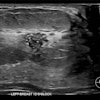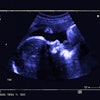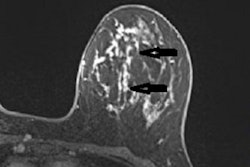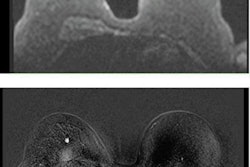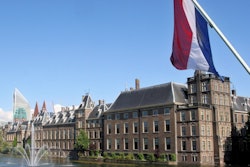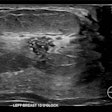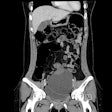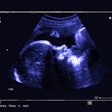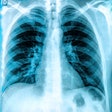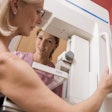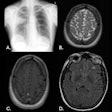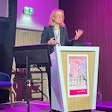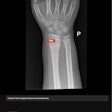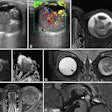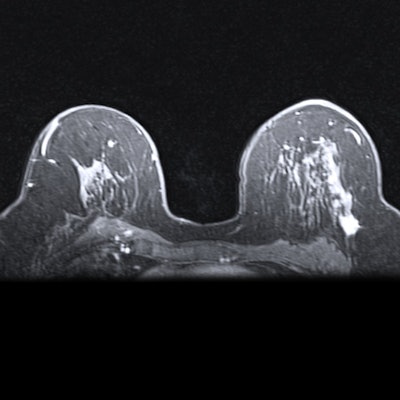
A fierce debate is underway in the Netherlands over the use of MRI for screening women with dense breasts. The Dutch Society of Radiology, the NVvR, has voiced its strong opposition to recent national guidance issued by the Health Council (Gezondheidsraad). The Health Council is against the use of MRI in breast cancer screening.
In a statement released on 2 December, the NVvR noted that after considering the Health Council's advice in late November at a meeting of the society's breast radiology section, it has now written to the Secretary of State for Health, Welfare and Sport to express its opinions.
The NVvR said it has emphasized the importance of the results of the DENSE study, which confirmed the efficacy of screening with MRI in women with dense breasts. It has urged the council to keep in mind the benefits as proven in this randomized control trial (New England Journal of Medicine, 28 November 2019, Vol. 381:22, pp. 2091-2102).
The letter to the Secretary of State for Health was signed on behalf of the NVvR board and members of the breast radiology section, and de Volkskrant, the Dutch daily newspaper and website, posted an article on 2 December about the topic. The matter was due to be discussed by the House of Representatives on 3 December, but it has now been moved to 1 February.
Women with dense breasts
Women with dense breasts account for approximately 8% of all women who attend screening, and the detection of cancer in dense breasts is reduced, whereas the occurrence is increased twofold, stated the article in de Volkskrant.
The Gezondheidsraad is advising the Secretary of State for Health against providing MRI screening to women with dense breasts because of the anxiety caused by a false-positive result on MRI and unnecessary follow-up diagnostic exams. It supports the use of contrast-enhanced mammography as a screening tool in this population instead. However, the scientific benefits of using contrast mammography in a screening setting have not been proven yet, and it will take another six years or so of research to obtain the evidence, Prof. Dr. Ruud Pijnappel, from Utrecht University Medical Centre, told de Volkskrant.
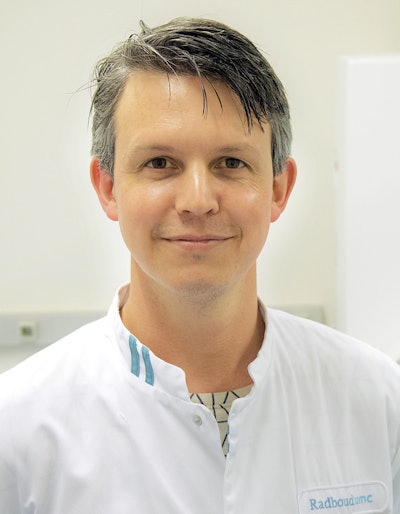 Dr. Ritse M. Mann, PhD.
Dr. Ritse M. Mann, PhD.Furthermore, Dr. Ritse M. Mann, PhD, a breast radiologist from Radboud University Medical, Nijmegen, and the Netherlands Cancer Institute -- Antoni van Leeuwenhoek in Amsterdam, stated that it's important to ask women with dense breasts if they prefer to know that there is no breast cancer above the stress of uncertainty resulting from a false-positive finding. It helps if the additional diagnostics are performed shortly after the screening exam, he said.
The Health Council states that MRI screening is more expensive and will require more equipment and personnel, but for radiologists, breast screening is income (the Achilles' heel of critics), Pijnappel told de Volkskrant. He predicts that women with dense breasts would start asking for MRI scans in the future and hospitals would start providing the exams. However, for the quality of the screening, it is better if it is organized nationally, he added.
Extremely dense breast tissue is a risk factor for breast cancer and limits the detection of cancer with mammography, explained Marije Bakker, PhD, and fellow authors of the 2019 NEJM paper about the DENSE trial.
Evidence was needed on the use of supplemental MRI to improve early detection and reduce interval breast cancers in such patients. During a two-year screening period, the use of supplemental MRI screening in women with extremely dense breast tissue and normal results on mammography resulted in a significant reduction of interval cancers (80%) and the detection of small tumors with less lymph node metastases compared with mammography alone, they reported.
Editor's note: Dr. Miraude Adriaensen, PhD, kindly assisted with the translation of the original Dutch material. She is a founding member of the AuntMinnieEurope.com editorial advisory board and is a radiologist involved in the Dutch breast cancer screening program.
